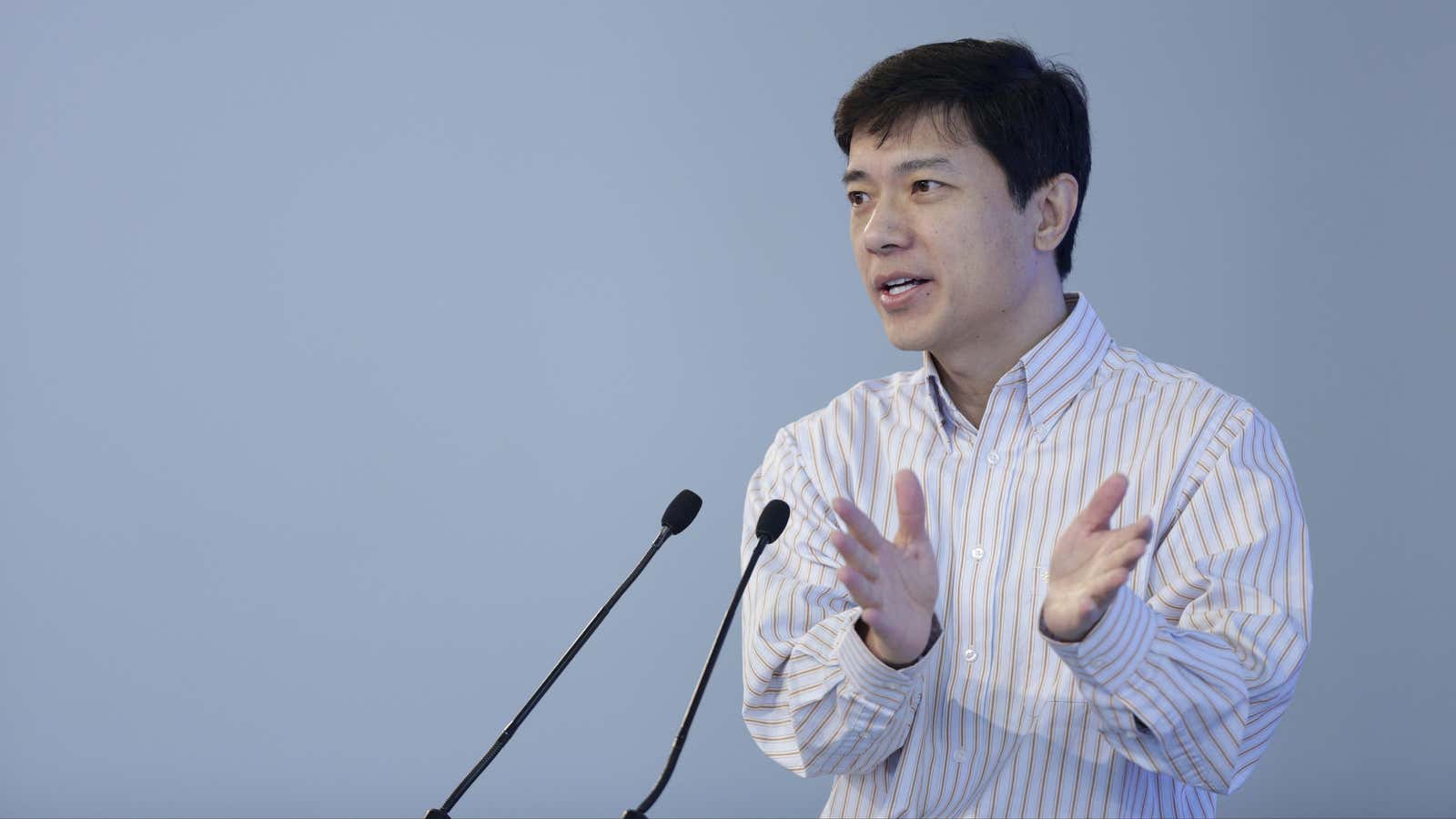Baidu, China’s version of Google, was ordered yesterday (May 9) to change how it handles paid advertising results, as China’s top internet watchdog wrapped up a weeklong investigation into its role in the death of a young cancer patient.
The Cyberspace Administration of China (CAC) announced yesterday evening that Baidu’s search results had influenced the medical choices of the patient, Wei Zexi, who died in April after receiving a little-tested treatment advertised on the search service. The death of the 21-year-old college student, who had a rare form of cancer, sparked a huge outcry online, leading to an official probe into Baidu.
Among the new rules announced yesterday: The company must overhaul its system for ranking search results so they’re not determined solely by how much advertisers have paid, and are instead ranked primarily by credibility. It must prevent companies that haven’t been approved by the government from being promoted, and clean up the health-care ads in its search results. Paid-for promotions should not consist of more than 30% of search results per page, and they should be more clearly marked as ads. All the changes must be completed by the end of this month.
In an internal letter sent to all staff this morning (May 10)—revealed by news portal Sina (link in Chinese) and confirmed by Quartz—Baidu founder and CEO Robin Li spoke out for the first time regarding the investigation. He said Baidu’s company values have been “squeezed out of shape” from putting earnings growth ahead of user experiences. “If we lose our users’ support or fail to stick to our values, Baidu will be only 30 days away from bankruptcy,” he wrote.
Li vowed to re-examine all Baidu business models and to overhaul those that have damaged user experiences. Though such changes might affect the company’s revenues, Li said, making them was the right decision in the long run.
The Nasdaq-listed company’s share price has plummeted nearly 13% since the investigation started on May 2.
Baidu, as one of the most powerful gatekeepers of information in China, controls more than 80% of the nation’s search market. It draws nearly all its revenues from ads, and an estimated 30% of that comes from medical advertisements.
During the weeklong investigation, Baidu—under the supervision of investigators—identified and took down 126 million paid advertisements, including ones from more than 2,500 health-care companies, according to a CAC statement (link in Chinese).
